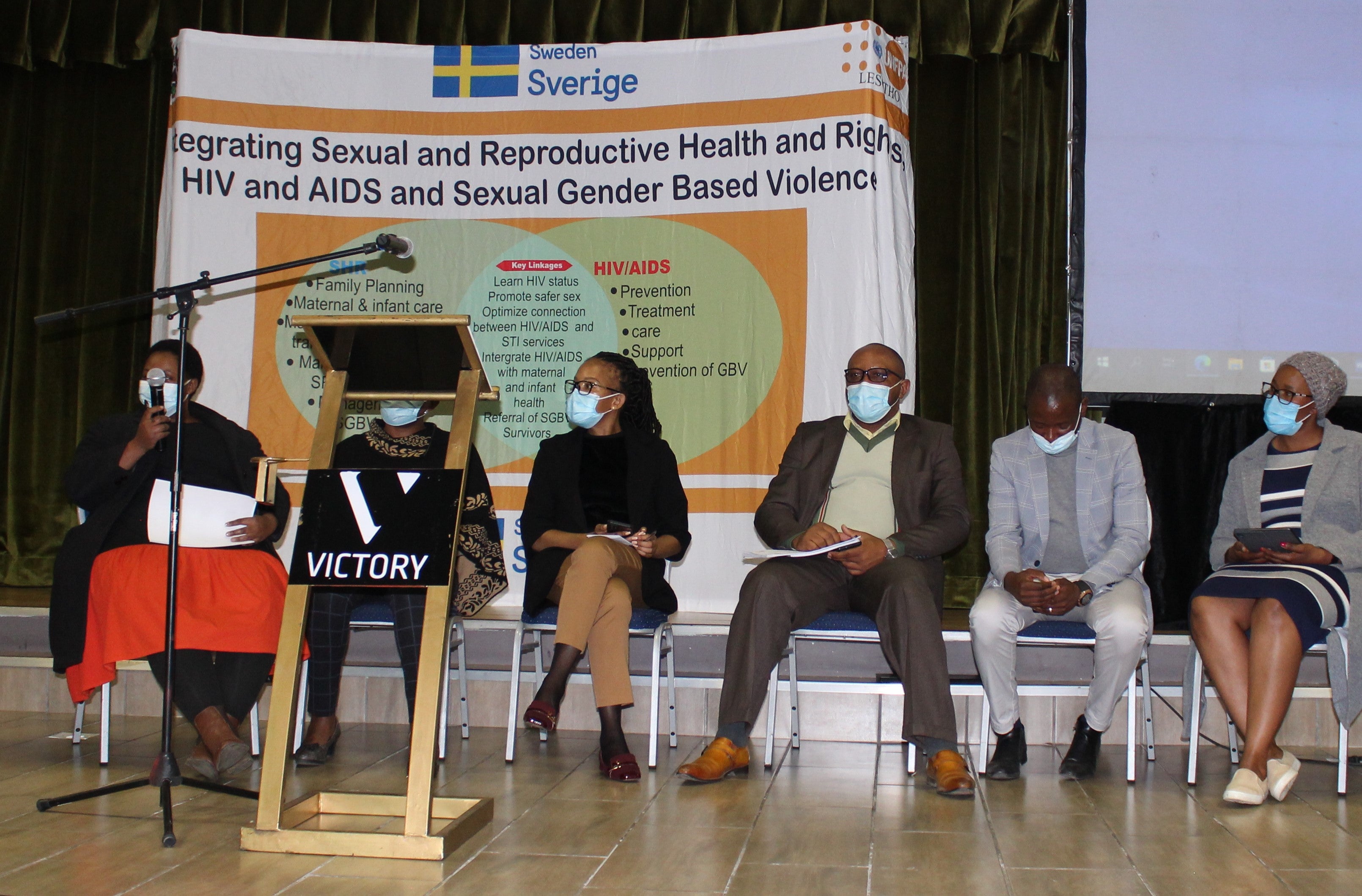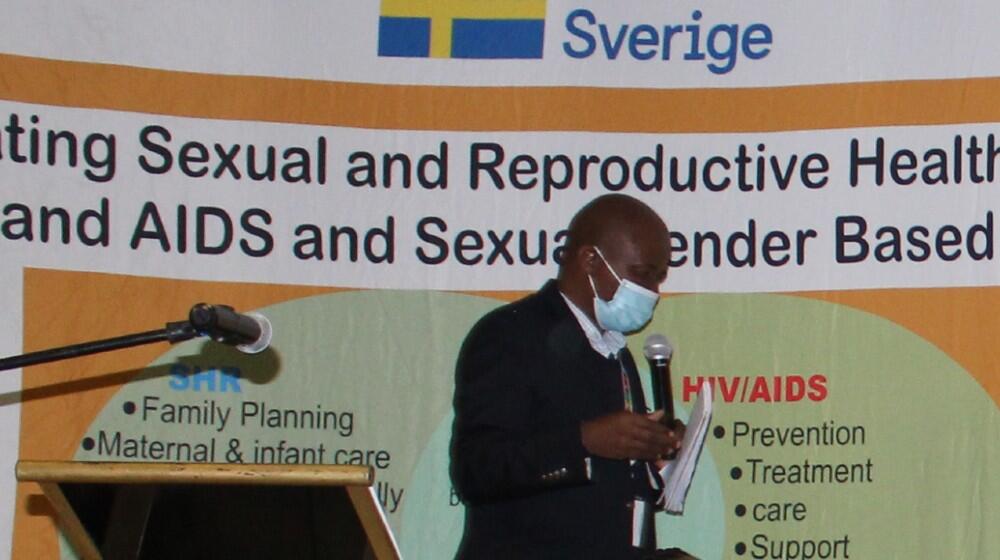Amazing job. That is how the Programme Manager for 2Gether4SRHR programme based at the East and Southern Africa Regional Office, Richard Delate summed up the Joint United Nations (UN) Regional Programme - 2Gether4SRHR programme which for four years brought together the collective and combined strengths of four United Nations agencies and entities in Lesotho (UNAIDS, UNFPA, UNICEF and WHO) to provide catalytic support to the government of Lesotho to scale up quality integrated Sexual and Reproductive Health and Rights (SRHR)/HIV and Sexual Gender Based Violence (SGBV) services so that all people, particularly women, adolescent girls, young people and key populations can exercise their SRH rights, reduce unmet need for family planning and improve access to integrated SRHR/HIV and SGBV services.
Speaking during 2Gether4SRHR Amplification Workshop held in Maseru, Lesotho recently, the Programme Manager commended Lesotho for the partnerships formed to implement the programme and thanked the Heads of UN agencies and the Government of Lesotho for “so much great work which has been achieved.” He advised Lesotho to learn from Eswatini by introducing an electronic system to record information on SRHR, in order to further improve efficiency.

The workshop had brought together District Administrators, District Medical Officers, Academia, Civil Society Organisations, Media and other health stakeholders to take stock of the progress made in SRHR/HIV/GBV services in Lesotho, review the contribution to SRHR/HIV/GBV integration of services and indicators between 2018 and 2021, advocate for the scaling up of promising interventions and to explore pathways for sustainability of SRHR/HIV/GBV in the country.
Also speaking at the workshop, the UN Resident Coordinator Ms Amanda Khozi Mukwashi lamented the high rate of Gender Based Violence in Lesotho which she said it “robs our women, girls and every single one of us of our dignity.” She said a 2019/20 Commonwealth study shows that GBV in Lesotho is not just hindering development, but costing the government and Basotho about M1.9 billion annually in healthcare costs, production, education, food security and other issues.
She said Lesotho loses over M1.9 billion per year in initiatives geared towards the fight against GBV, through costs related to healthcare, lost production, education, food security and all other things incurred when women and girls experience violence and are unable to produce or work due to GBV, adding, “they are also a cost to government.”
At the same occasion, the Minister of Health Hon Semano Sekatle said evidence showed that the 2Gether4SRHR programme helped the country achieve a lot adding that a recent survey showed that Lesotho is in control of the HIV epidemic after the country achieved the UN goals of 90-90-90 and is on course to achieving the 95-95-95 goals.
During the workshop, it emerged that Lesotho has made significant gains in the provision of integrated SRHR, HIV and SGBV services through the implementation of the 2Gether4SRHR programme as an enabling environment has been created through the multi-sectoral development of strategic documents and guidelines such as the National HIV Policy (2019) which is now incorporating SRHR, SGBV, key populations and Sustainable Development Goals, and the National HIV Operational Plan (2020-2023) that will guide fast-track plans for integrated SRHR, HIV and SBGV .
There was also a panel discussion where districts shared their experiences with the implementation of 2gether4SRHR programme, focusing on key differences the programme has made in each district and what could have been done better during the programme implementation.
The 2Gether4SRHR programme has been implemented in five countries in Southern Africa, funded by the Swedish International Development Cooperation Agency (SIDA).
The programme, whose implementation has been led by UNFPA, had been designed to support the government of Lesotho to create an enabling legal and policy environment that empowers all people, but particularly women, adolescent girls, young people and key populations to exercise their Sexual and Reproductive Health rights and access quality integrated SRHR/HIV and SGBV services and to scale up the provision of client centered quality assured integrated and sustainable SRHR/HIV and SGBV services.


